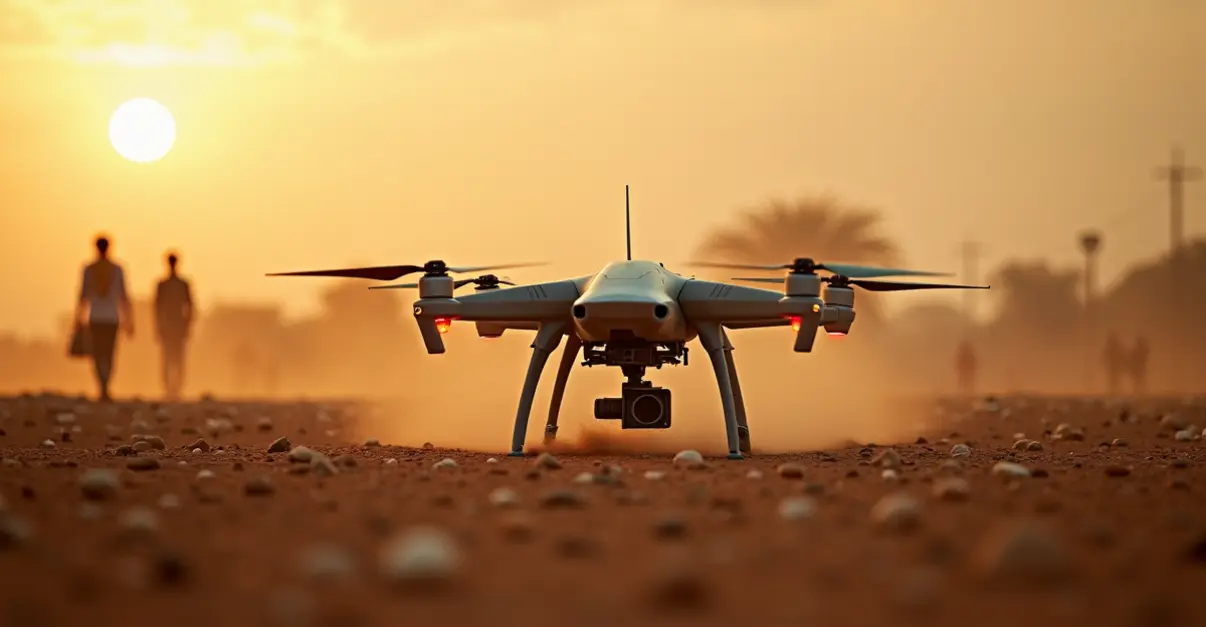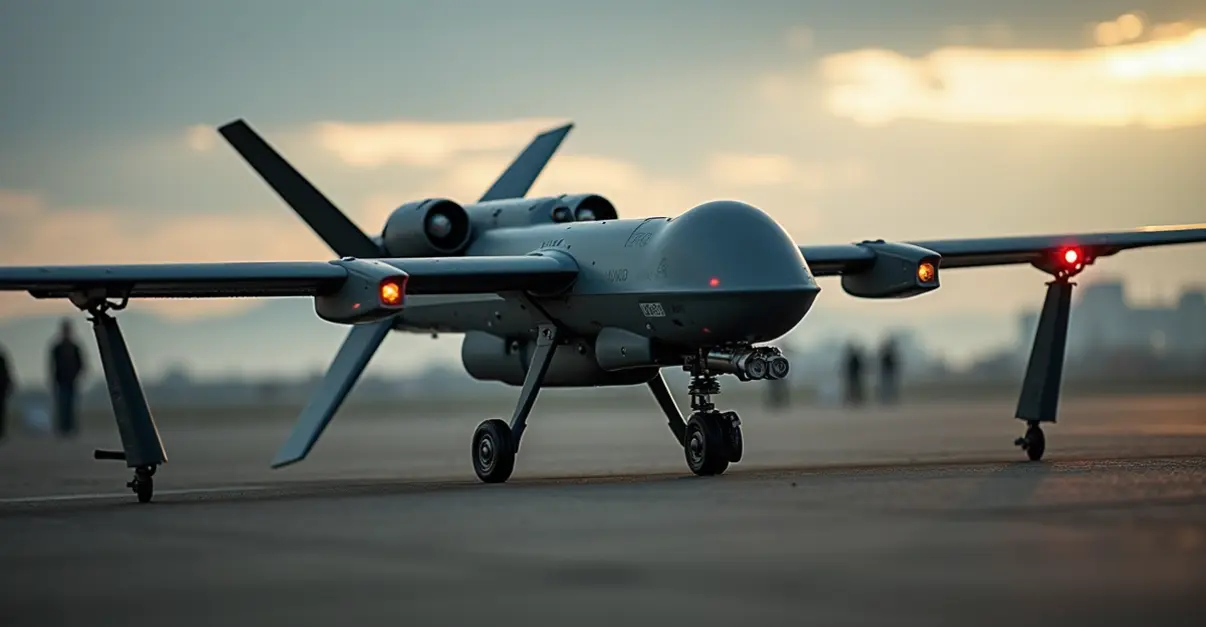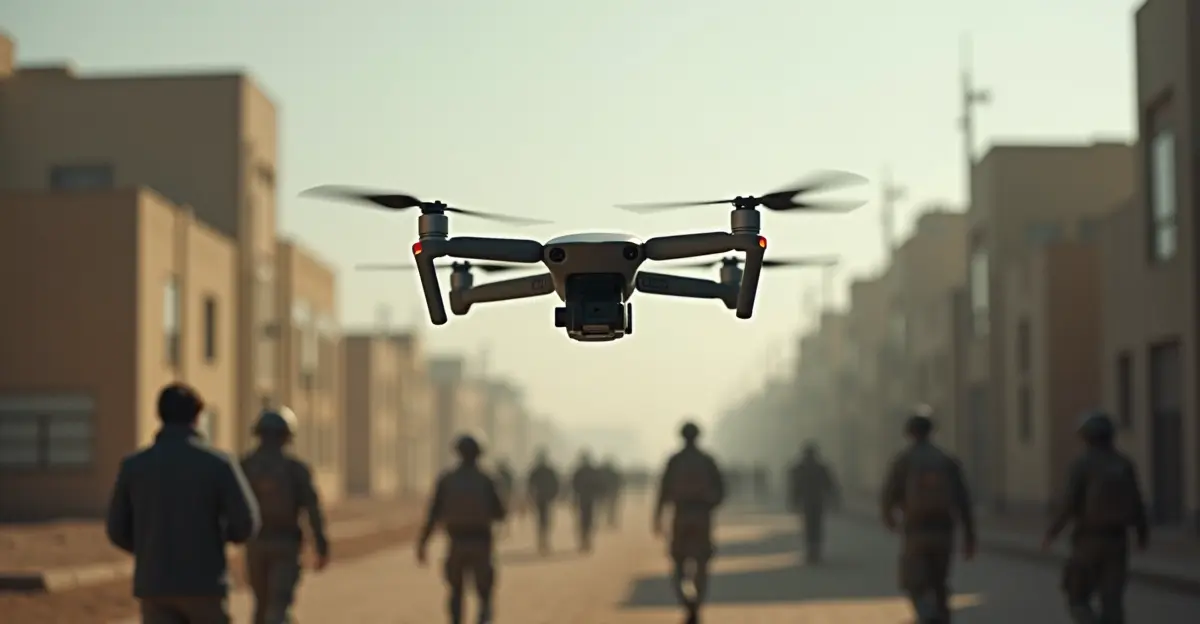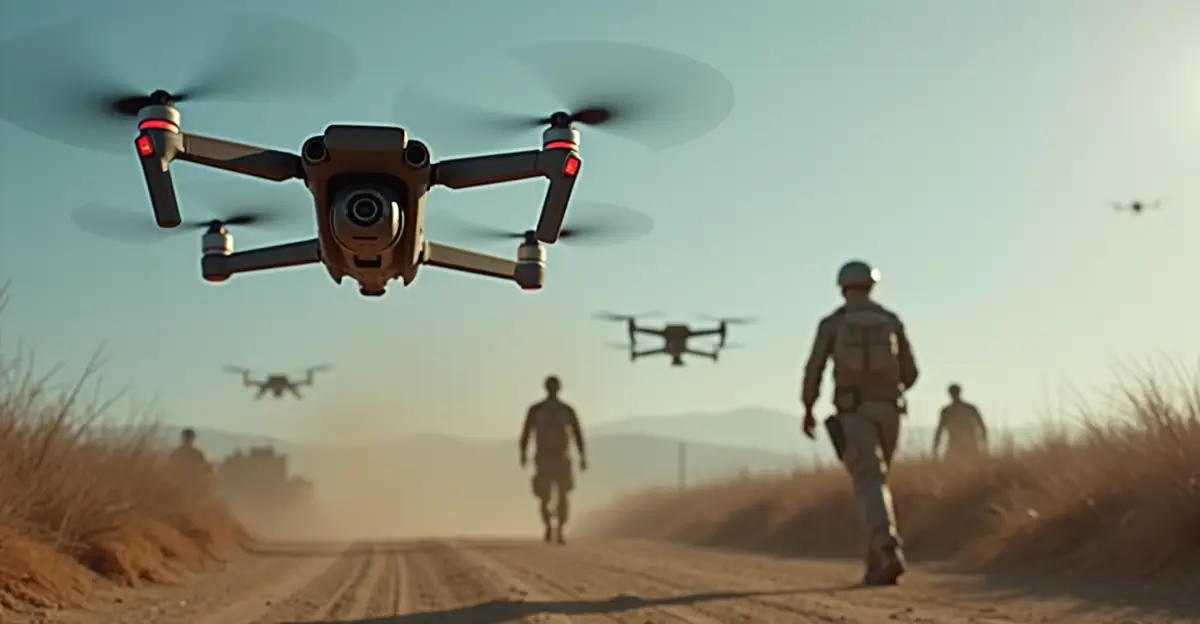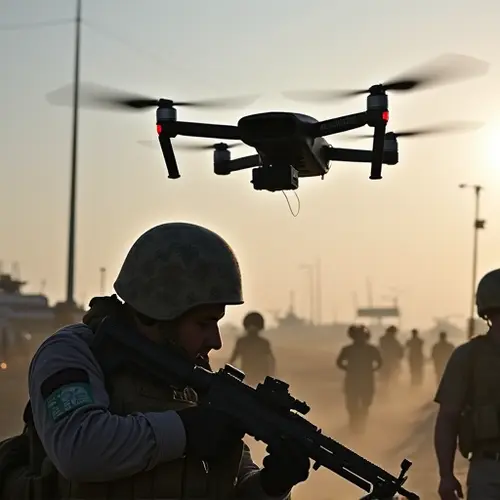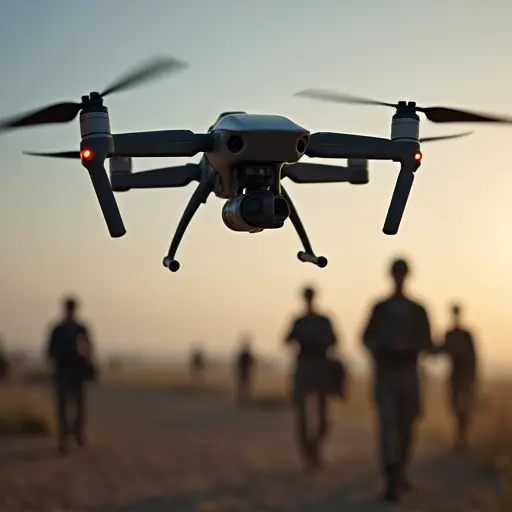Civilian Drones Weaponized in Mali's Deadly Conflict
In the vast deserts of Mali, a new and terrifying weapon has emerged that is changing the nature of the country's decade-long conflict. Rebel groups and terrorist organizations are increasingly turning commercially available civilian drones into deadly kamikaze weapons, creating unprecedented fear among civilians and security forces alike.
The Drone Revolution in West Africa
Inspired by drone warfare seen in conflicts from Ukraine to the Middle East, armed groups across Mali have embraced this technology with devastating effect. 'Terrorists use kamikaze drones to attack the military or civilians,' says drone expert Moussa Diarra from his office in Kati, a garrison city overlooking the capital Bamako. 'They don't need sophisticated equipment - a simple civilian drone is enough. They just modify some data, like the power of the propellers and maximum flight altitude, and then attach an explosive to the bottom.'
The trend has escalated dramatically over the past two years, with Burkina Faso reporting more than a dozen kamikaze drone strikes since February 2025 alone. According to a recent analysis, terrorist groups across Mali, Burkina Faso, and Niger are modifying readily available commercial drones to carry out suicide attacks, dropping improvised explosive devices on military positions.
Multiple Actors, Multiple Threats
The drone proliferation involves multiple actors in Mali's complex conflict landscape. The Malian military, which works with Russian mercenaries from the Africa Corps (formerly the Wagner Group), possesses approximately twenty drones from Turkish manufacturer Baykar. 'Turkey dominates the drone market here,' says Ulf Laessing, head of Sahel for the Konrad Adenauer Foundation. 'It's quite logical that they've reached the Sahel. Drones require little maintenance and allow the military to monitor vast areas.'
Meanwhile, jihadist groups affiliated with al-Qaeda and the Islamic State have reached what experts call 'a new level of operational capability' with drones. The Tuareg rebel group Front de Libération de l'Azawad (FLA) also employs the technology. 'You can't wage war anywhere without drones anymore,' says FLA spokesperson Mohamed Elmaouloud Ramadane. 'We have people who know how to make kamikaze drones with explosives.'
Civilian Casualties and Targeting Challenges
The proliferation of weaponized drones raises serious concerns about civilian casualties. 'But how do they know who they're hitting when they see people in the desert next to a pickup?' asks Laessing. 'Are they really sure these are soldiers? Or maybe they're terrorists? The same applies to the Malian military. The risk to civilians is absolutely greater with drones.'
Human rights organizations have accused the Malian military and its Russian partners of massacres that have killed hundreds of civilians. Meanwhile, jihadist groups continue to spread across the Sahel, with the region now qualified as the 'global center of terrorism' according to recent reports.
Geopolitical Dimensions
The drone conflict reflects broader geopolitical shifts in the region. Mali's military government, which came to power through a double coup in 2021, has shifted from French to Russian support. The Wagner Group has announced its withdrawal from Mali, but Russian paramilitary presence continues through the Africa Corps, a Kremlin-controlled group that remains as security advisers.
Turkey has also expanded its influence, with Baykar showcasing its drone technology at the first Bamako Expo Fair (BAMEX'25) in Mali. Africa represents one of Baykar's fastest-growing markets, with numerous nations adopting Turkish drone technology for security needs.
The Human Cost
For ordinary Malians, the drone proliferation means living in constant fear. The technology allows attacks from unexpected directions and makes traditional security measures less effective. As one security analyst noted, 'These small, easily concealed drones exploit the region's porous borders and limited cross-border cooperation, allowing militants to acquire them cheaply for modification.'
The situation has become so dire that experts warn the decade-long war in Mali could become even more dangerous and deadly. With violence and civilian casualties already increasing significantly since the military government took power, the weaponization of drones represents a dangerous new chapter in Mali's ongoing tragedy.

 Nederlands
Nederlands
 English
English
 Deutsch
Deutsch
 Français
Français
 Español
Español
 Português
Português
